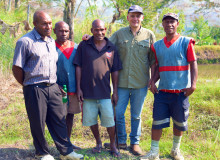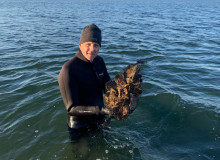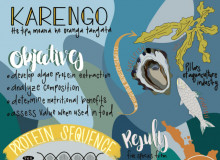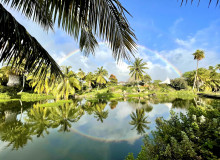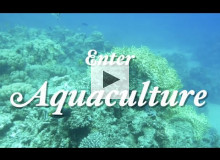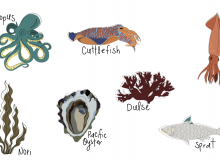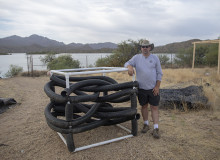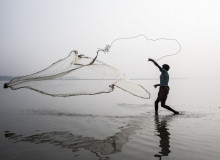aquaculture
Planet Forward Correspondent | Middlebury College
In this audio story, University of New South Wales Professor Jesmond Sammut explains the transformative power of his aquaculture and fish farming research in Papua New Guinea.
Georgetown University
Through regenerative aquaculture, Michael Doall is using the ecosystem services of oysters and kelp to clean up our oceans and our plates.
George Washington University
Paving the way for the future of New Zealand’s aquaculture industry, The Cawthron Institute is collaborating with Te Rūnanga o Ngāi Tahu and Wakatū Incorporation to study the native species of karengo.
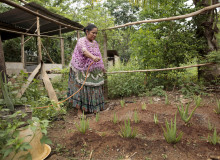
In 2015, in collaboration with Indigenous leaders and Indigenous youth, FAO identified 6 pillars of work and 2 focus areas—Indigenous women and Indigenous youth—as part of FAO’s goal of freeing the world of hunger and malnutrition (Photo courtesy of UN Women/Ryan Brown https://creativecommons.org/licenses/by-nc-nd/2.0/).
Planet Forward FAO Fellow | University of Oklahoma
Indigenous Peoples’ communities' challenges and priorities of “food security, food sovereignty, and health have accelerated and intensified during the COVID-19 pandemic,” according to Indigenous Peoples’ Liaison Mikaila Way.
Planet Forward FAO Fellow | University of Oklahoma
For many organizations, COVID-19 meant doors closed. Yet at one sacred, Native Hawaiian fishpond, community members worked to advance their efforts to reclaim the land, culture, and traditions of sustainable aquaculture.
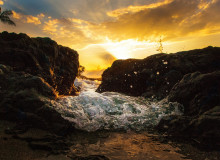
(Photo courtesy of Keegan Houser/Unsplash - https://unsplash.com/photos/W6ZFtDLR27g)
Planet Forward FAO Fellow | University of Oklahoma
"Mo‘olelo," or storytelling, is embedded deeply in the Hawaiian culture. Now, groups of Native Hawaiians and allies are using it to destigmatize the traditional practice of fishponds and reunite with their roots.
The George Washington University
Environmentalists and scientists have always asked, how can we save our oceans? One solution, aquaculture, instead asks us to look at ways in which the world's oceans can save themselves.
George Washington University
An exploration of the untapped value of cephalopods and algae in a sustainable seafood diet.
Arizona State University
It isn't easy being a fish in the desert in Arizona. But Arizona Game & Fish Department is trying to improve the habitat conditions for the fish in warm weather lakes.
George Washington University
Small-scale fisheries are critically important to communities around from the world, from Alaska to Senegal, but they don't receive attention on a global level.

